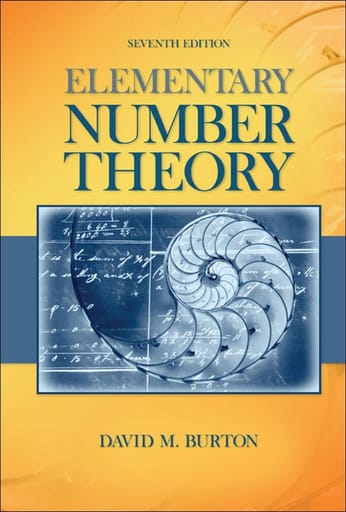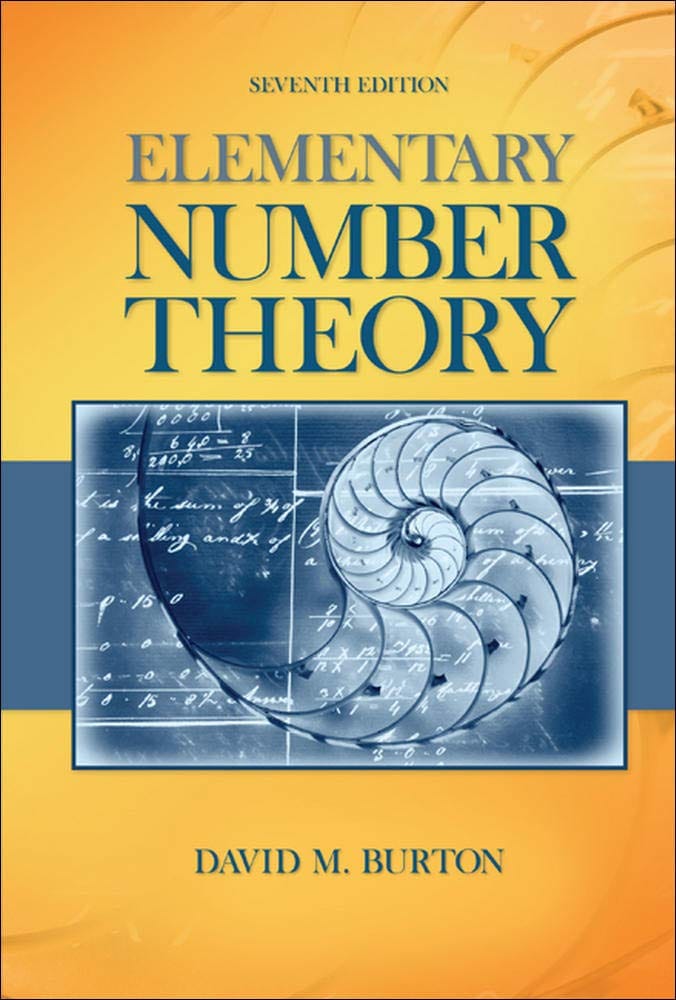
Elementary Number Theory Problems 4.2 Solution (David M. Burton's 7th Edition) - Q12 Paid Members Public
My Solution for "Prove the following statements: (a) If $gcd(a, n) = 1$, then the integers $$c, c + a, c + 2a, c + 3a, ... , c + (n - 1)a$$ form a complete set of residues modulo $n$ for any $c$. (b) Any $n$ consecutive integers form a complete set of residues modulo $n$. (c) The product of ..."
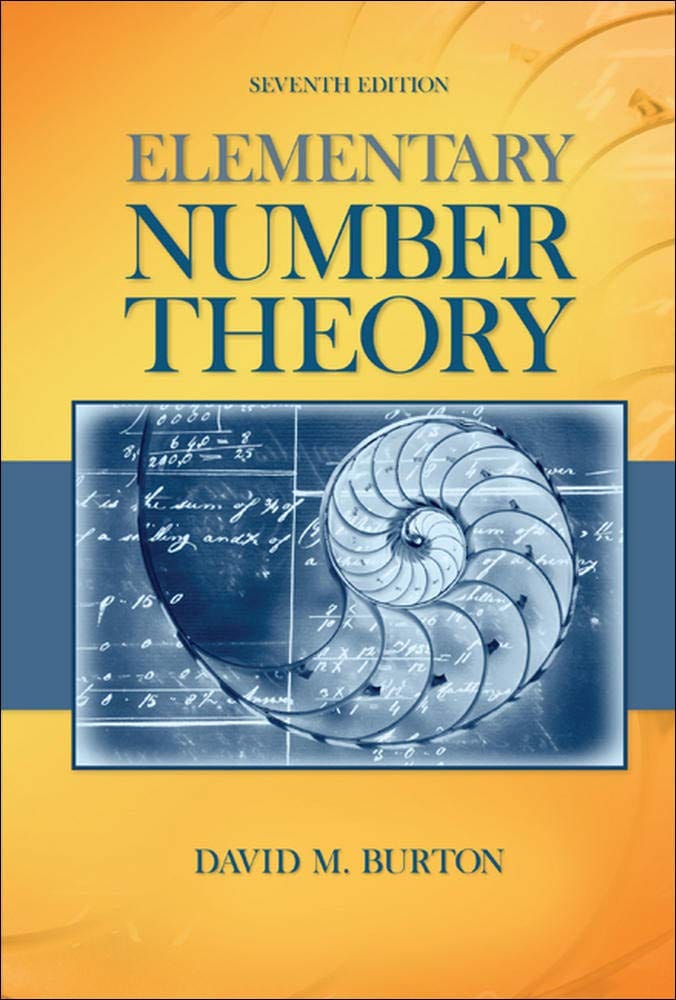
Elementary Number Theory Problems 4.2 Solution (David M. Burton's 7th Edition) - Q11 Paid Members Public
My Solution for "Verify that $0, 1, 2, 2^{2}, 2^{3}, ..., 2^{9}$ form a complete set of residues modulo $11$, but that $0, 1^{2} , 2^{2} , 3^{2} , ... , 10^{2}$ do not."
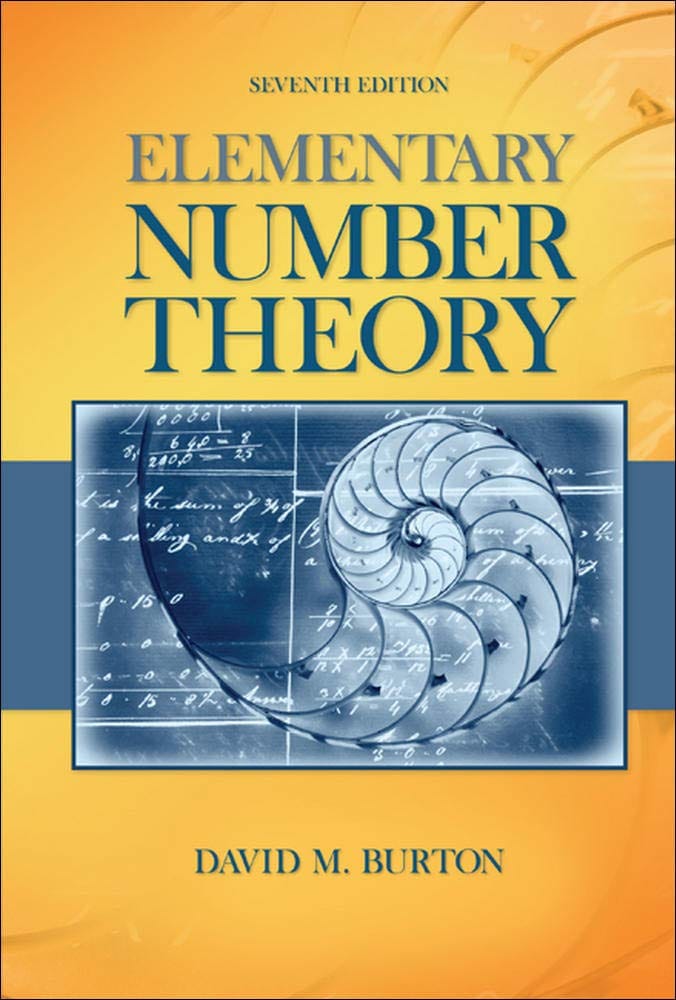
Elementary Number Theory Problems 4.2 Solution (David M. Burton's 7th Edition) - Q10 Paid Members Public
My Solution for "If $a_{1}, a_{2}, ..., a_{n}$ is a complete set of residues modulo $n$ and $gcd(a, n) = 1$, prove that $aa_{1}, aa_{2}, ... , aa_{n}$ is also a complete set of residues modulo $n$. [Hint: It suffices to show that the numbers in question are incongruent modulo $n$.]"
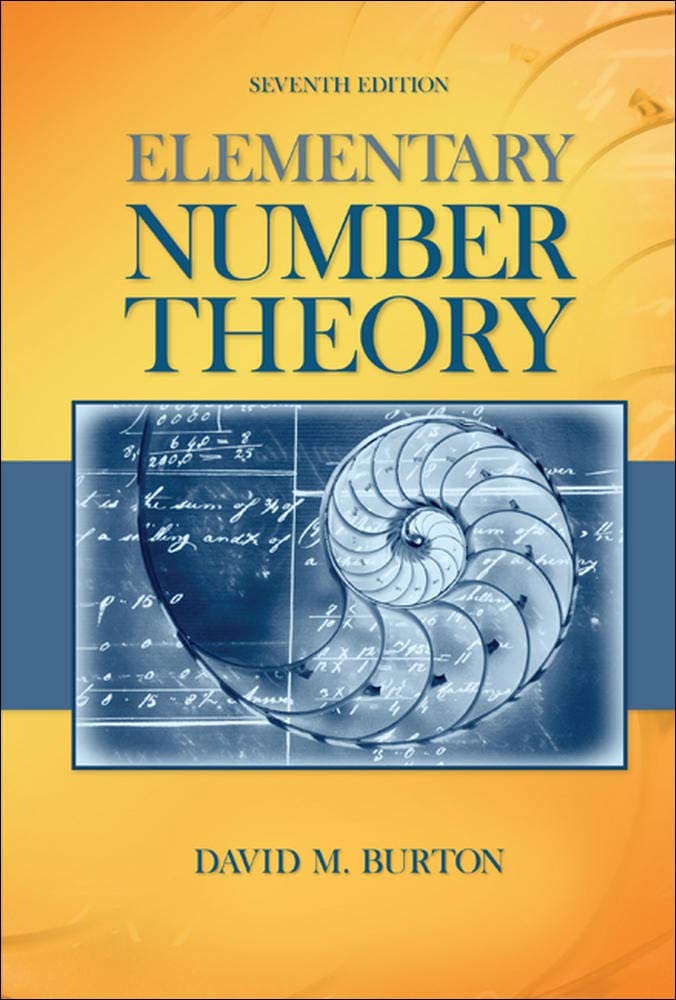
Elementary Number Theory Problems 4.2 Solution (David M. Burton's 7th Edition) - Q9 Paid Members Public
My Solution for "If $p$ is a prime satisfying $n < p < 2n$, show that $${2n \choose n} \equiv 0 \pmod p$$"
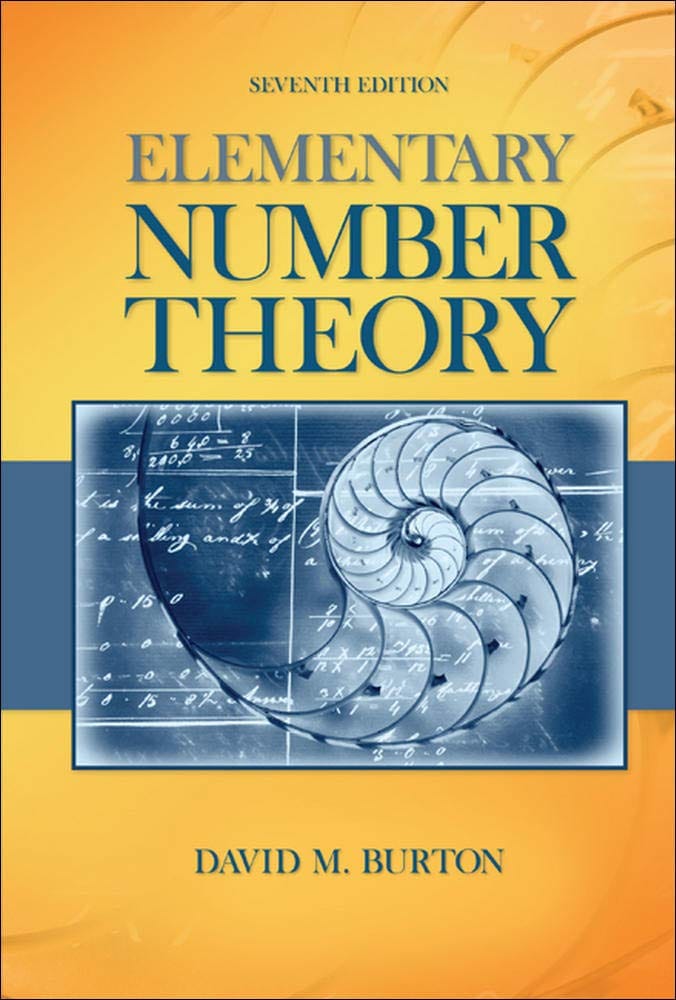
Elementary Number Theory Problems 4.2 Solution (David M. Burton's 7th Edition) - Q8 Paid Members Public
My Solution for "Prove the assertions below: (a) If $a$ is an odd integer, then $a^{2} \equiv 1 \pmod 8$. (b) For any integer $a$, $a^{3} \equiv 0, 1,$ or $6 \pmod 7$. (c) For any integer $a$, $a^{4} \equiv 0$ or $1 \pmod 5$. (d) If the integer $a$ is not divisible by $2$ or $3$, ..."
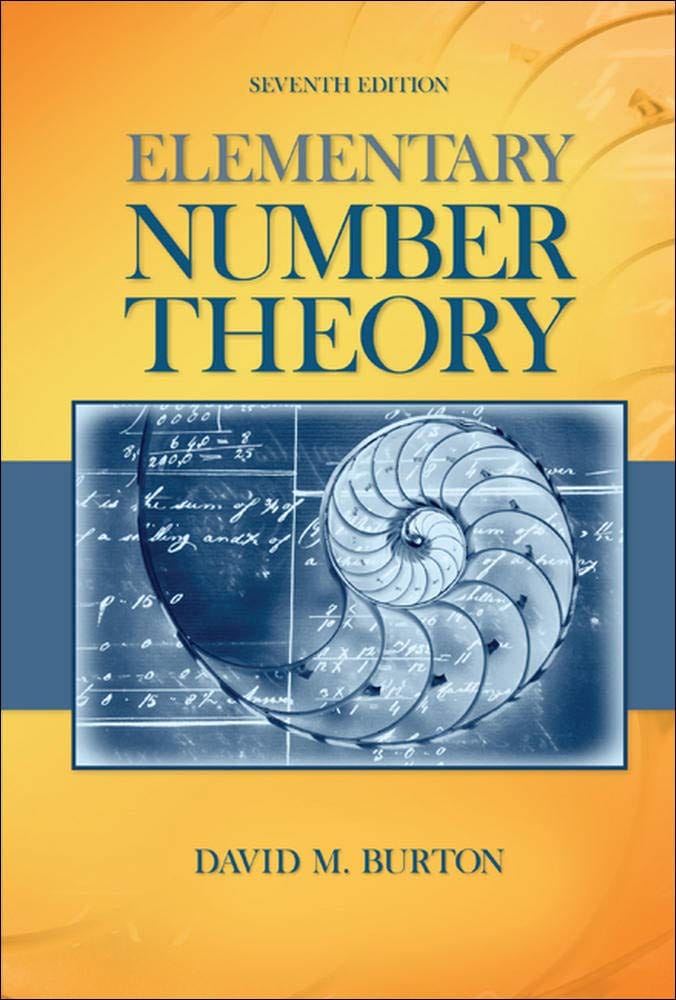
Elementary Number Theory Problems 4.2 Solution (David M. Burton's 7th Edition) - Q7 Paid Members Public
My Solution for "For $n \geq 1$, show that $$(-13)^{n + 1} \equiv (-13)^{n} + (-13) ^{n - 1} \pmod {181}$$ [Hint: Notice that $(-13)^{2} \equiv -13 + 1 \pmod {181}$; use induction on $n$.]"
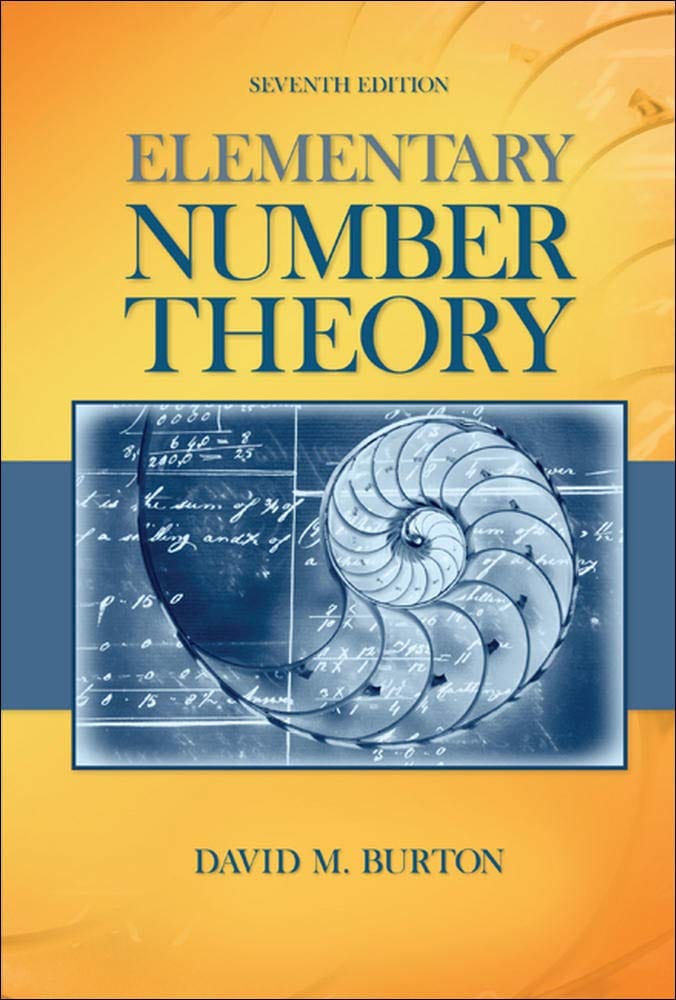
Elementary Number Theory Problems 4.2 Solution (David M. Burton's 7th Edition) - Q6 Paid Members Public
My Solution for "For $n \geq 1$, use congruence theory to establish each of the following divisibility statements: (a) $7 \mid 5^{2n} + 3 \cdot 2^{5n-2}$. (b) $13 \mid 3^{n+2} + 4^{2n+1} $. (c) $27 \mid 2^{5n+1} + 5^{n+2}$. (d) $43 \mid 6^{n+2} + 7^{2n+1}$."
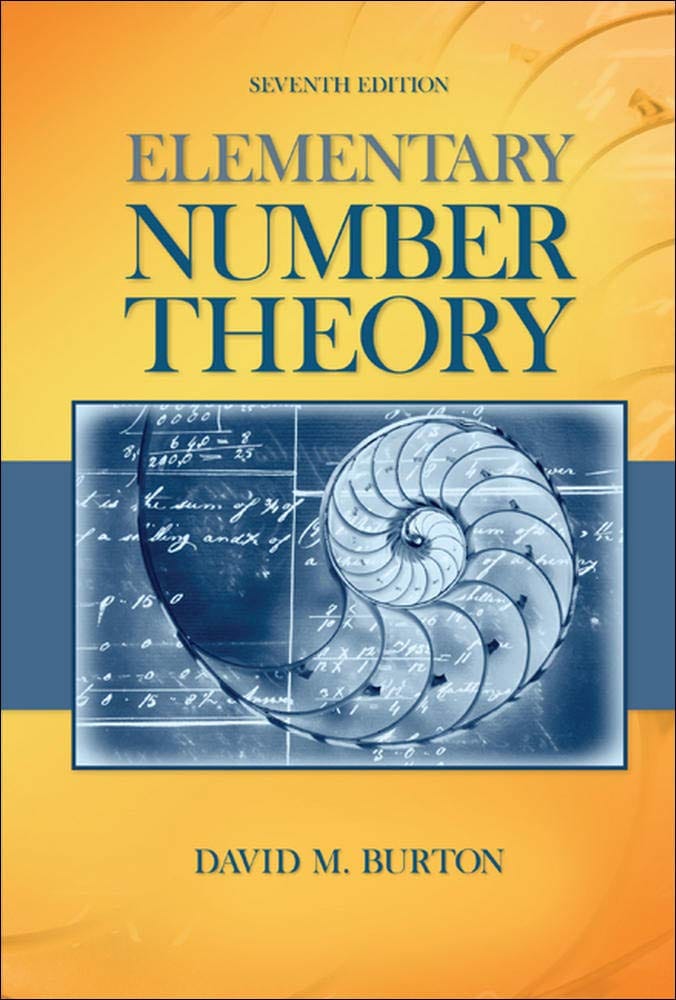
Elementary Number Theory Problems 4.2 Solution (David M. Burton's 7th Edition) - Q5 Paid Members Public
My Solution "Prove that the integer $53^{103} + 103^{53}$ is divisible by $39$, and that $111^{333}$ + $333^{111}$ is divisible by $7$."
